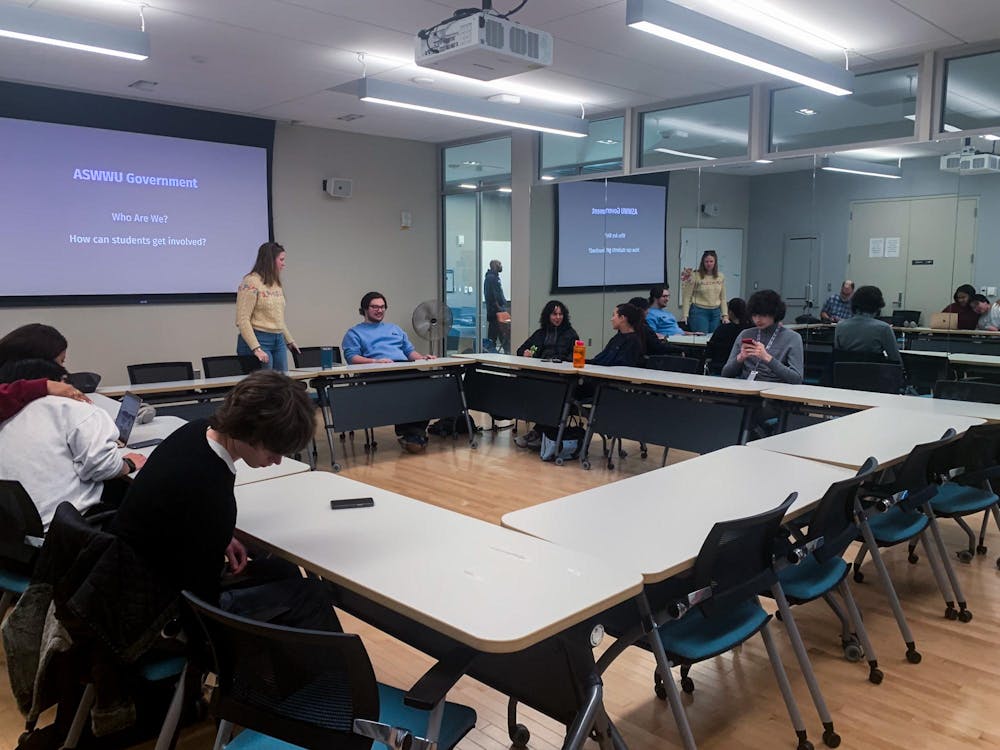The Associated Students (AS) of Western Washington University held a luncheon on Thursday, Jan. 29, to discuss how students can participate in student government.
Malachi Phillips and Emma Fredlund, two elected student representatives from AS, came to the lunch. Fredlund is one of the student senators for the College of the Environment, while Phillips is the president of the entire Associated Students government.
Both talked about how much the student government is ignored by students, with 3.6% of eligible students voting in last spring’s ASWWU election for their positions, according to Lorio.
“We used to have around 20 percent turnout back in the 2010s, but then COVID happened,” Phillips said.
Director of ASWWU Governance Advising Adam Lorio said to an audience of ten during the lunch that the small audience was a consequence of people not knowing who their student senators are, who their executive board members are and who their committee members are.
“The first Associated Students of Western started in 1906,” Lorio said. “By state law, Western can have one recognized student association. Every institution in the state practices this a little differently.”
Over the generations of student governance at Western Washington University, AS has been everything from a secret hidden from faculty (the original AS went down to Olympia in 1906 to register in secret as a student association) to the current form of student government, under the current charter, according to Lorio.
Last year, University President Sabah Randhawa and former AS President Keara Ryan negotiated an updated student governance charter.
“It’s a pretty substantial change from how student government was done two years ago,” Lorio said.
The whole governing body is split between two different governing boards — the Senate and the Executive Board. According to their website, the Senate is responsible for representing students in academic matters, such as “department policies, curriculum design, assessments and academic support services.”
Every college on campus elects two senators, and the responsibilities of the student senators are to “participate in academic committees, meet with their student constituents and work alongside faculty and administration to address and fulfill the needs of their college's students.”
The Executive Board, meanwhile, is responsible for representing students outside of academic matters, including but not limited to, student activities, student services, sustainability, governmental affairs, diversity and university operations.
Roman Boyer (he/him) is a campus news reporter for The Front this quarter. He is a political science major and a journalism news/ed minor. When he’s not reporting, you can find him hanging out with his friends and watching TikToks. You can reach him at romanboyer.thefront@gmail.com.






